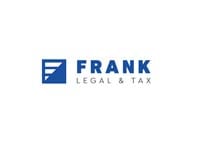News and developments
Digital Asset Taxes for Cryptocurrency and Digital Tokens
The revenue department’s announcement regarding taxing cryptocurrency has been in effect on 13 May 2018; however, investors continue to face confusion, controversy, and other difficulties.
In January, the department held a public hearing with representatives from the public and private sectors. To explore digital asset tax guidelines, representatives from the Bank of Thailand, the Securities and Exchange Commission (SEC), the Thai Digital Asset Association, the Fiscal Policy Office and investor groups met to arrive at a digital asset tax collection approach appropriate for the current situation.
The guidelines are under the Revenue Code Amendment Act (No. 19) B.E. 2561 (2018). The taxable transactions must be conducted through the digital asset exchange platform under the SEC only. These are as follows:
The Revenue Department has classified cryptocurrency and digital token income earners who are expected to file personal income tax by submitting a personal income tax return (PND 90/91) by 31 March 2023 into five categories:
1. Exchange or disposal of cryptocurrencies or digital tokens
The income derived from trading, exchanging, selling, transferring, or disposal of cryptocurrency/digital tokens is regarded as assessable income under Section 40 (4) (g) of the Revenue Code Amendment Act (No. 19).
The income and profit from the sale, payment, transfer, or trading of the cryptocurrency and digital token shall be calculated as follows:
Once a costing method is selected, it must be followed throughout the tax year. And the cost must include the necessary expense such as transfer fees and other expenses.
2. Cryptocurrency mining
As of the date of receipt of mining cryptocurrencies, they are not considered assessable income.
When the mined cryptocurrencies are sold, paid, transferred, or traded, they are considered assessable income under Thai Revenue Code Section 40(8) by deducting expenses incurred as necessary and reasonable. However, the miners must keep relevant documentation and prepare the cost accounting such as computer maintenance costs, employee wages, electricity bill and internet fees that occurred in the tax year, including expenses that are in the nature of investments in assets such as computers, which are gradually deducted from the property’s depreciation as required by law.
3. Getting paid in cryptocurrencies as salary or wages
The employees are paid a salary in cryptocurrencies as income, as employment is considered under Section 40 (1) assessable income.
The employees who received remuneration in cryptocurrencies are deemed as income whether from the job, or the position employees are employed. Whether a full-time or a part-time job, it is considered the recipient of the assessable income under Section 40(2).
If the employees are receiving a salary that is assessable income under Section 40 (1) and receiving wage which is assessable income under Section 40 (2) from the same employer, the recipient of the income must collectively present it under Section 40 (1).
4. Receiving cryptocurrencies as a gift, award, prize
Receiving cryptocurrency/digital tokens from giving or receiving as a gift is considered income under section 40 (8), for example, as a giveaway when participating in an event or receiving promotional rewards.
A digital cryptocurrency valuation can be made by calculating cost and revenue using its value at the time of acquisition or its average price on the date of purchase.
When receiving cryptocurrency/digital tokens and the value has been taxed, they can be used as a cost in calculating tax when sold.
5. Return on Investment from holding a digital token or cryptocurrencies such as Yield Farming or Staking.
Under Section 40 (4)(h), it is considered income: profit-sharing or similar benefits derived from holding digital tokens.
Both cost and revenue measurements for digital tokens are based on the value at the time of acquisition or the average price on the date of purchase.
In the case of receiving digital tokens and the value has been taxed, they can be used as a cost in calculating tax when sold.
If you have any questions, please contact us at [email protected] or +66 02 117 9131.
View the original article on the FRANK Legal & Tax website
